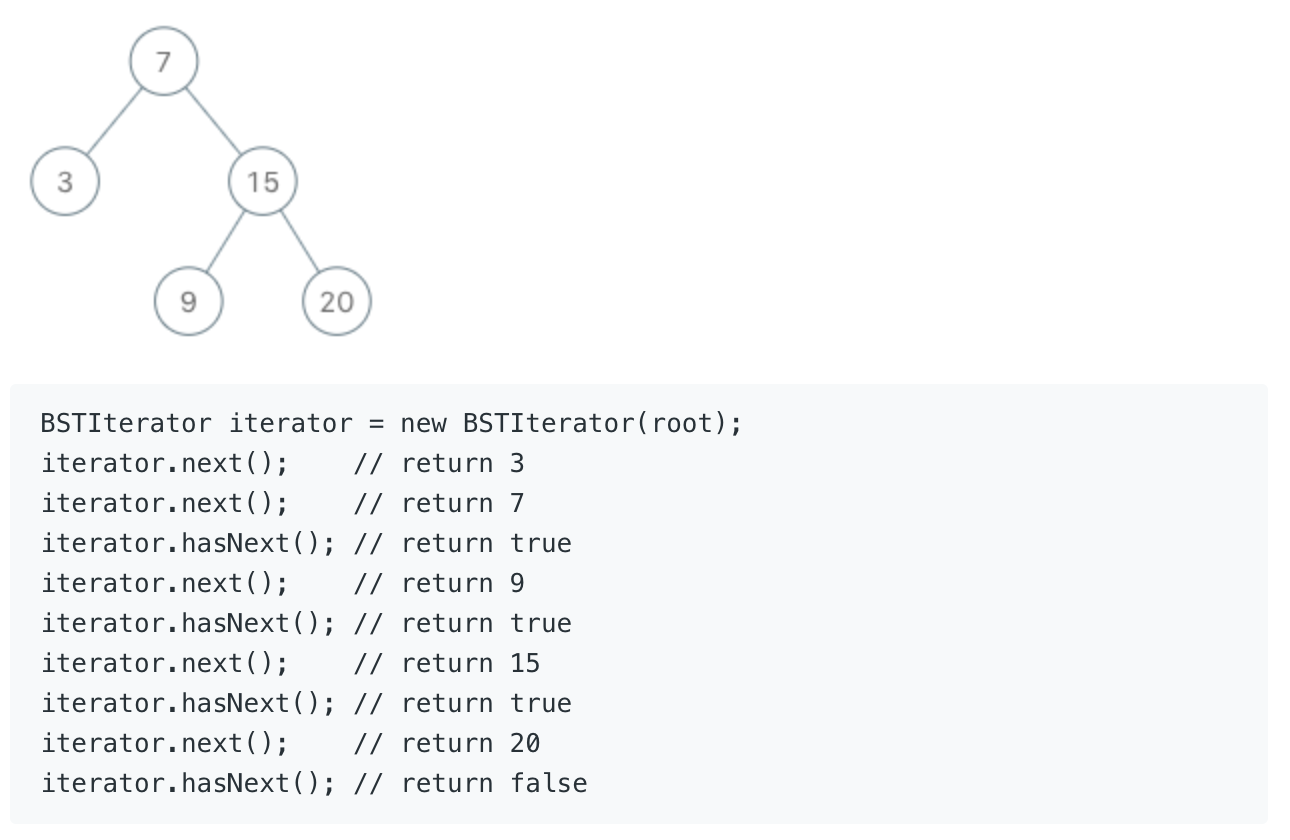Binary Search Tree Iterator
Implement an iterator over a binary search tree (BST). Your iterator will be initialized with the root node of a BST. Calling next() will return the next smallest number in the BST.
(设计二叉搜索树的迭代器)
Note:
- next() and hasNext() should run in average O(1) time and uses O(h) memory, where h is the height of the tree.
- You may assume that next() call will always be valid, that is, there will be at least a next smallest number in the BST when next() is called.
Example:

1. 中序遍历 & 栈
这道题主要考察的是二叉树的中序遍历的非递归形式,用中序遍历即可从小到大取出所有节点,但是需要额外定义一个栈来存储从根节点到左子树所有的左孩子结点。在不断迭代的过程中,不断地pop栈顶并实时将右结点push进去。具体实现过程如下:
1 | # Definition for a binary tree node. |